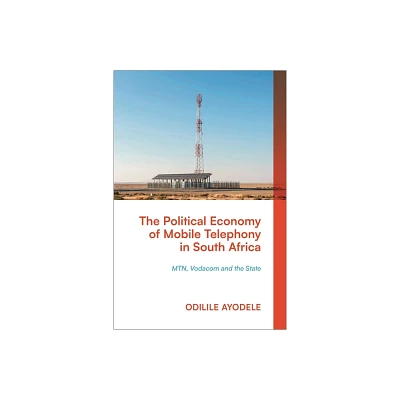Home
The Political Economy of Universal Healthcare Africa: Evidence from Ghana
Loading Inventory...
Barnes and Noble
The Political Economy of Universal Healthcare Africa: Evidence from Ghana
Current price: $180.00


Barnes and Noble
The Political Economy of Universal Healthcare Africa: Evidence from Ghana
Current price: $180.00
Loading Inventory...
Size: Hardcover
*Product Information may vary - to confirm product availability, pricing, and additional information please contact Barnes and Noble
The global rise in pandemics, most recently COVID-19, and other health challenges, some of which are due to climate change, have imposed significant challenges on the healthcare systems in economies around the world. Thus, this book deals with an issue that is very timely and relevant, not just in Africa but globally. It critically assesses healthcare reforms in Ghana under the Fourth Republic, since 1993. Although it focuses on Ghana’s National Health Insurance Scheme of 2003, the book instructively goes beyond this program.
The book argues that, although Ghana is a bellwether of healthcare reforms in Africa, its healthcare initiatives are still far from the service haven of healthcare as a human right. Themes that animate the book’s argument include the need to translate human rights law, such as the right to health, into practical policies that work for ordinary citizens. Key highlights of the book include an increased accent on health as a human right, emphasis on comparative analysis in healthcare studies, and the formulation of a four-hallmark framework, embedded in economics, law, politics, and human rights, to act as a guide for assessment of healthcare reforms in Africa in particular, and Ghana more specifically.
Using Ghana as a case study and analytical window into the world, the book offers a valuable and timely resource for academics, students and policymakers across the disciplines of development and healthcare economics, law, public policy, political science, sociology, and African and Caribbean studies, as well as in various fields in health science.
The book argues that, although Ghana is a bellwether of healthcare reforms in Africa, its healthcare initiatives are still far from the service haven of healthcare as a human right. Themes that animate the book’s argument include the need to translate human rights law, such as the right to health, into practical policies that work for ordinary citizens. Key highlights of the book include an increased accent on health as a human right, emphasis on comparative analysis in healthcare studies, and the formulation of a four-hallmark framework, embedded in economics, law, politics, and human rights, to act as a guide for assessment of healthcare reforms in Africa in particular, and Ghana more specifically.
Using Ghana as a case study and analytical window into the world, the book offers a valuable and timely resource for academics, students and policymakers across the disciplines of development and healthcare economics, law, public policy, political science, sociology, and African and Caribbean studies, as well as in various fields in health science.


















